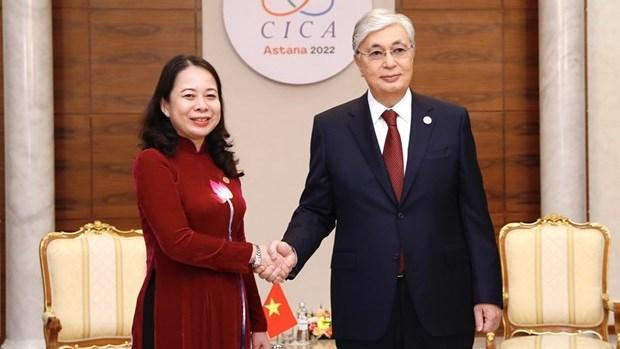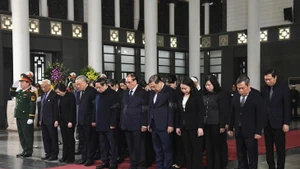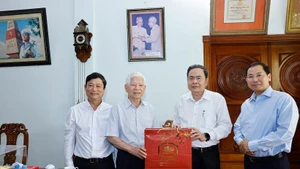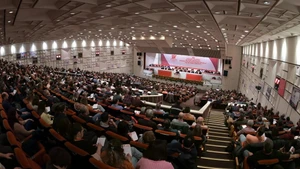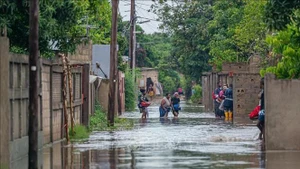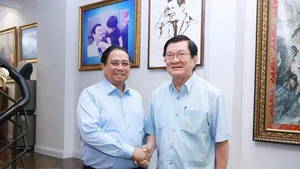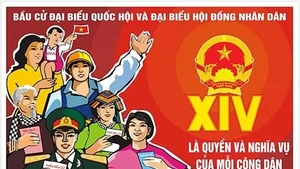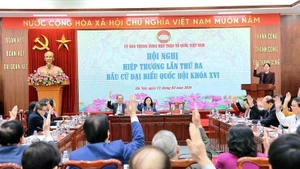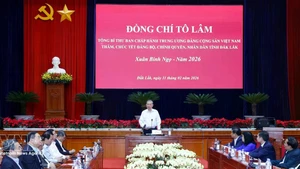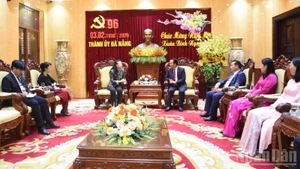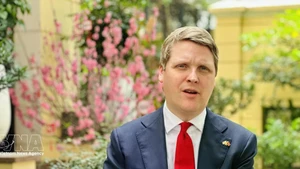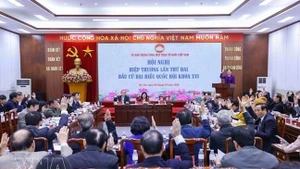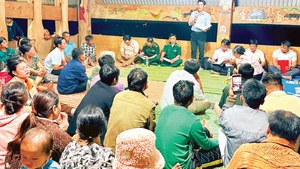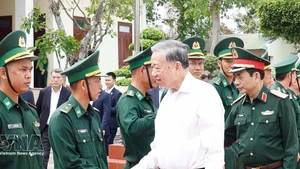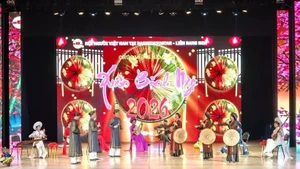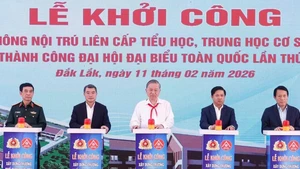Welcoming the Vietnamese leader, Kazakh President Kassym-Jomart Tokaev highly valued Vietnam’s role and significant contributions within the CICA framework. He affirmed that Kazakhstan treasures the bilateral friendship and views Vietnam as an important partner in the Asia-Pacific region.
Vice President Xuan expressed her delight that her visit coincides with the 30th founding anniversary of bilateral diplomatic ties. She affirmed Vietnam always attaches importance to the traditional friendship with Kazakhstan, agreeing to increase delegation exchanges via all channels and at all levels.
The two leaders shared the view that there remains much room for bilateral economic partnerships, especially in such potential fields as tourism, logistics, agriculture, and construction.
They agreed to further capitalise on advantages generated by the free trade agreement between Vietnam and the Eurasian Economic Union (EAEU), of which Kazakhstan is a member, and officially open a direct air route. They also concurred to raise the two-way trade turnover to 1.5 billion USD by 2030.
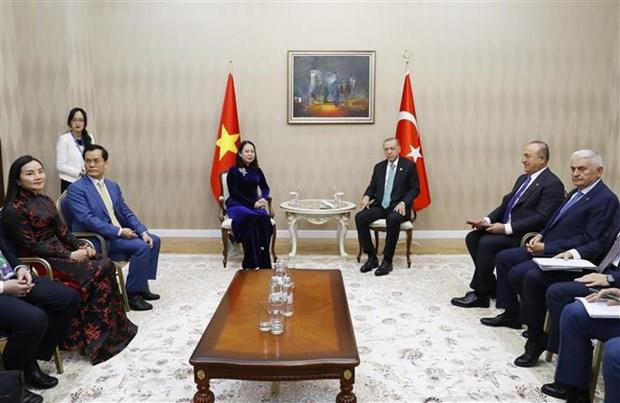 |
| Vice President Vo Thi Anh Xuan and Turkish President Recep Tayyip Erdogan at the meeting in Astana on October 13. (Photo: VNA) |
At the meeting with Vice President Xuan, Turkish President Recep Tayyip Erdogan stressed that Turkey considers Vietnam as the most important partner in the Association of Southeast Asian Nations (ASEAN), and wants to enhance bilateral cooperation and coordinate with Vietnam at international forums and organisations, especially within the United Nations framework.
He underlined Turkey’s support for Vietnam and ASEAN’s stance on the peaceful settlement of disputes on the basis of international law. He also agreed that both sides should work closely to develop connections in economy, trade, investment, tourism, infrastructure development, transport, and maritime economy on par with the potential and importance of the two countries’ relations.
Describing Turkey as one of the leading trade and investment partners of Vietnam in the Middle East, Vice President Xuan called on both sides to continue coordination and mutual support at multilateral forums and international organisations while working to successfully hold people-to-people and cultural exchanges to mark the 45th founding anniversary of diplomatic ties in 2023.
She also asked for close coordination to tackle bottlenecks and further facilitate exports to each other’s markets.
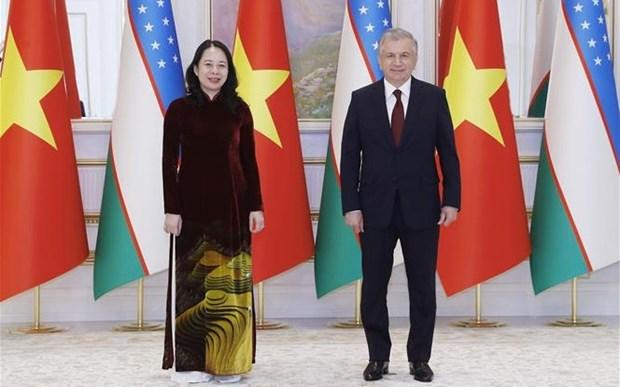 |
| Vice President Vo Thi Anh Xuan and Uzbek President Shavkat Mirziyoyev in Astana on October 13. (Photo: VNA) |
Talking with Uzbek President Shavkat Mirziyoyev, Vice President Xuan highlighted that Vietnam always treasures the two countries’ traditional friendship and hopes to step up bilateral cooperation in all aspects. She proposed the two nations further strengthen their political ties through all-level delegation exchanges, and maintain mutual support at international and regional forums.
The Uzbek leader said Vietnam is an important traditional friend and a trustworthy partner of his country in Asia, adding that he is impressed with Vietnam’s considerable achievements in economic development, social security ensuring, poverty reduction, and international integration over the last three decades since the Doi moi (Reform) period began.
The two leaders held that it is necessary to further promote economic, trade, and investment ties so that the relations match with the faithful and sincere political ties between the two countries.
They also agreed to organise the 8th meeting of the Inter-Governmental Committee early; consider the establishment of partnerships in producing rice, textile - garment, cotton, electronic components, and household appliances; and consider the launching of a direct air route to facilitate transport, people-to-people exchange, and tourism cooperation.
